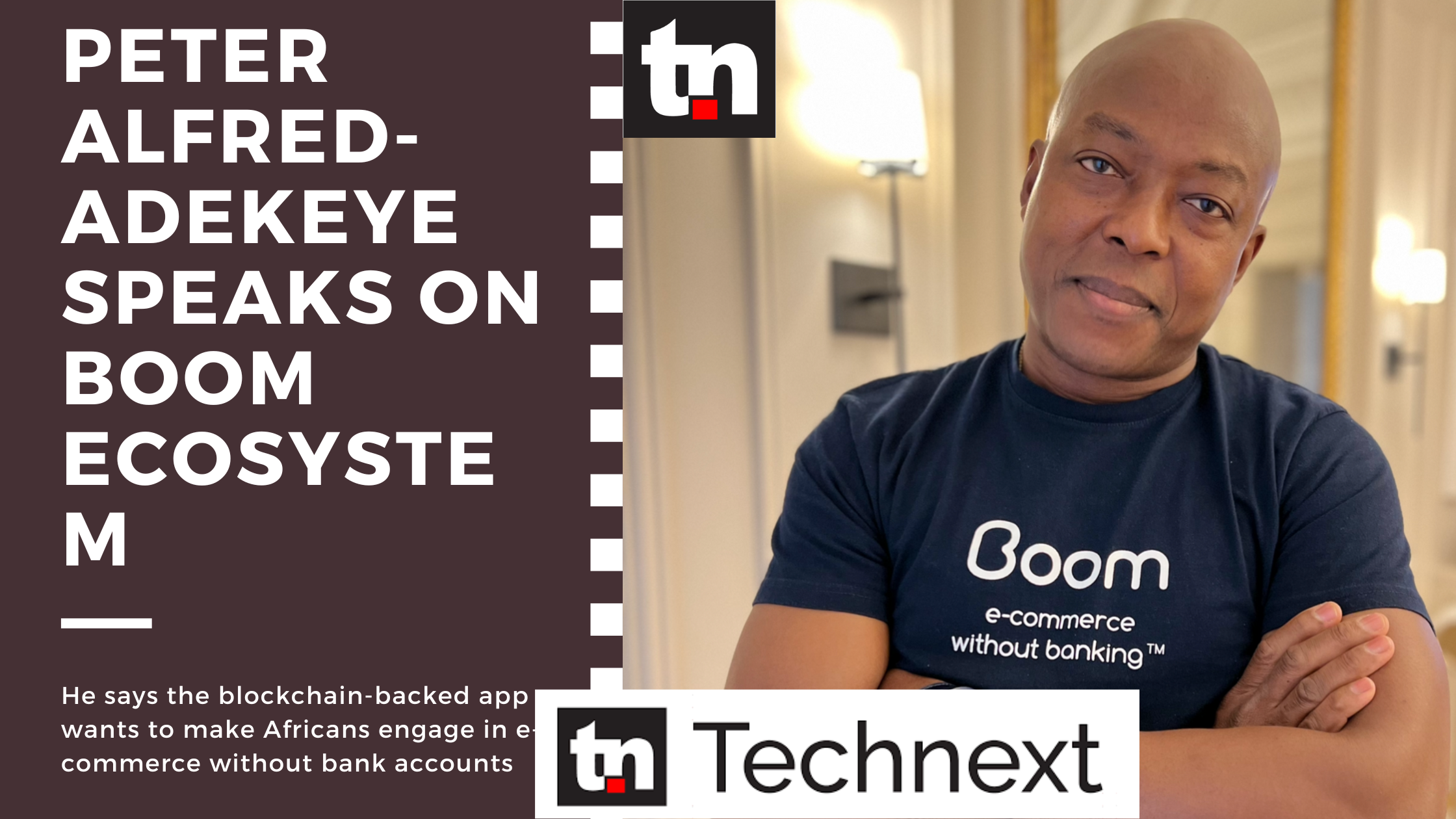Boom, a blockchain-based startup, launched by Peter Alfred-Adekeye is an ecosystem that aims to bring an e-commerce platform to the underserved communities of Africa, allowing them to buy and sell online without a bank account.
In this edition of the blockchain personality interview, we spoke to Peter about his background, his journey into the world of blockchain, and his drive to build the blockchain ecosystem.
Peter studied Civil Engineering at the prestigious Obafemi Awolowo University, before leaving for the United Kingdom where he studied advanced courses at Stratford and worked for top companies.
Read also:
Meet Nmesoma Okonkwo, a self-taught product designer who spends her free time mentoring other women
Around 2008, he founded a private social intellectual network. The network comprised 1000 brilliant minds in cryptography, and security research engineering. The purpose of the network was to collaborate, discuss, and solve real-life problems and from there, the idea of the Boom ecosystem was born.
Boom’s mission in Africa
Boom, launched six months ago, could be likened to a super app. It houses the Boom Marketplace, Boom Wallet, Boom Talks and Boom Hose, emerging as a holistic portal to address financial disparities.
Central to the solution is its Wallet, along with Boomcoin (BMC), the ecosystem’s native currency and medium of exchange, functioning as the technological facilitator for seamless instant transactions.
BoomPay, the online payment gateway solution for merchants and brands with pre-existing online marketplaces, allows them to accept payments at checkout from unbanked customers with an easy-to-integrate SDK for their marketplace, giving them access to previously untapped consumers.


While explaining how it works in simpler terms, Peter Alfred-Adekeye said almost two billion people globally do not have bank accounts which means they cannot make payments. But now, Boom has created a system that allows people to create an account, create merchant profiles, and list goods and services. And when people buy, they cash out the money through an agent.
“For instance, if you’re selling something in Lagos on Boom App, and I don’t have a bank account, and I see what I want to buy. I’ll go take my cash and give it to a Boom Agent (likened to a POS Agent) to fund my wallet. I’ll give them the cash and they in turn transfer Boom tokens to my wallet. I’ll use the tokens to pay for the goods and the merchant can also cash out through the Boom agent. Simple as that.” – Peter explained in a conversation with Technext.
Also, he stated that blockchain technology is used because of decentralisation and the purpose of creating a digital currency to be used as a medium of exchange within the application. Also, an AI software generates credit scores for Boom wallet addresses, which could be useful to users to access loans on platforms.
Compliance and plans for Nigeria
According to the CEO, the company takes compliance seriously. Apart from its KYC feature (accounts cannot be activated until KYC is passed), there is also KYB (Know Your Business) for merchants and KYT (Know Your Transactions) which tracks all transactions on the platform.
“From the regulator’s perspective, we are more than compliant. When you buy something from a Boom merchant, the funds are taken from your wallet and held in an escrow account, it’s only when the goods are delivered and customers express satisfaction, that’s when the fund is credited to the merchant account. This means that customers and merchants are both protected.”


Related post:
Meet Ravebeta, the cybersecurity startup redefining cyber protection with a 95% customer satisfaction rate
At the moment, Boom is starting out in ten African countries including Nigeria, South Africa, Congo, Ethiopia, Zimbabwe, Angola, CAR, Egypt and others.
“We’re giving each country to be a part of this ecosystem so that liquidity providers in each country can create a pool of their tokenized currency in each country, so people can inject liquidity to that currency and use it for trades.”
According to the CEO, one of the key things the company has done to make life better for Nigerians is that through its ecosystem, Nigerians can now buy and more importantly sell on the internet to the whole world.
“And when they buy they’re not going to be buying in naira. They don’t need to look for hard currency anymore. That’s a groundbreaking solution which will improve the economy, stabilise the currency and empower people to be more successful.”

